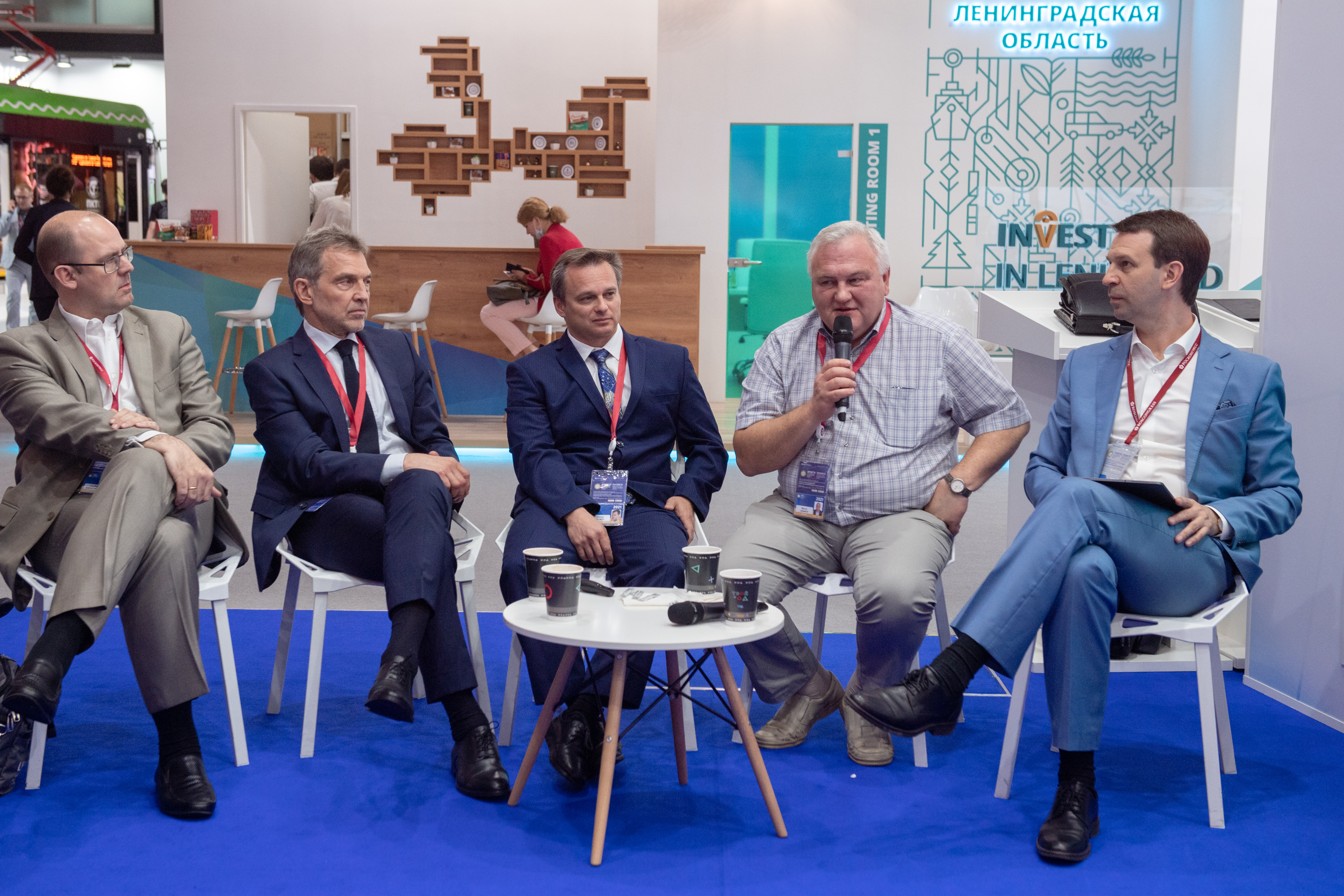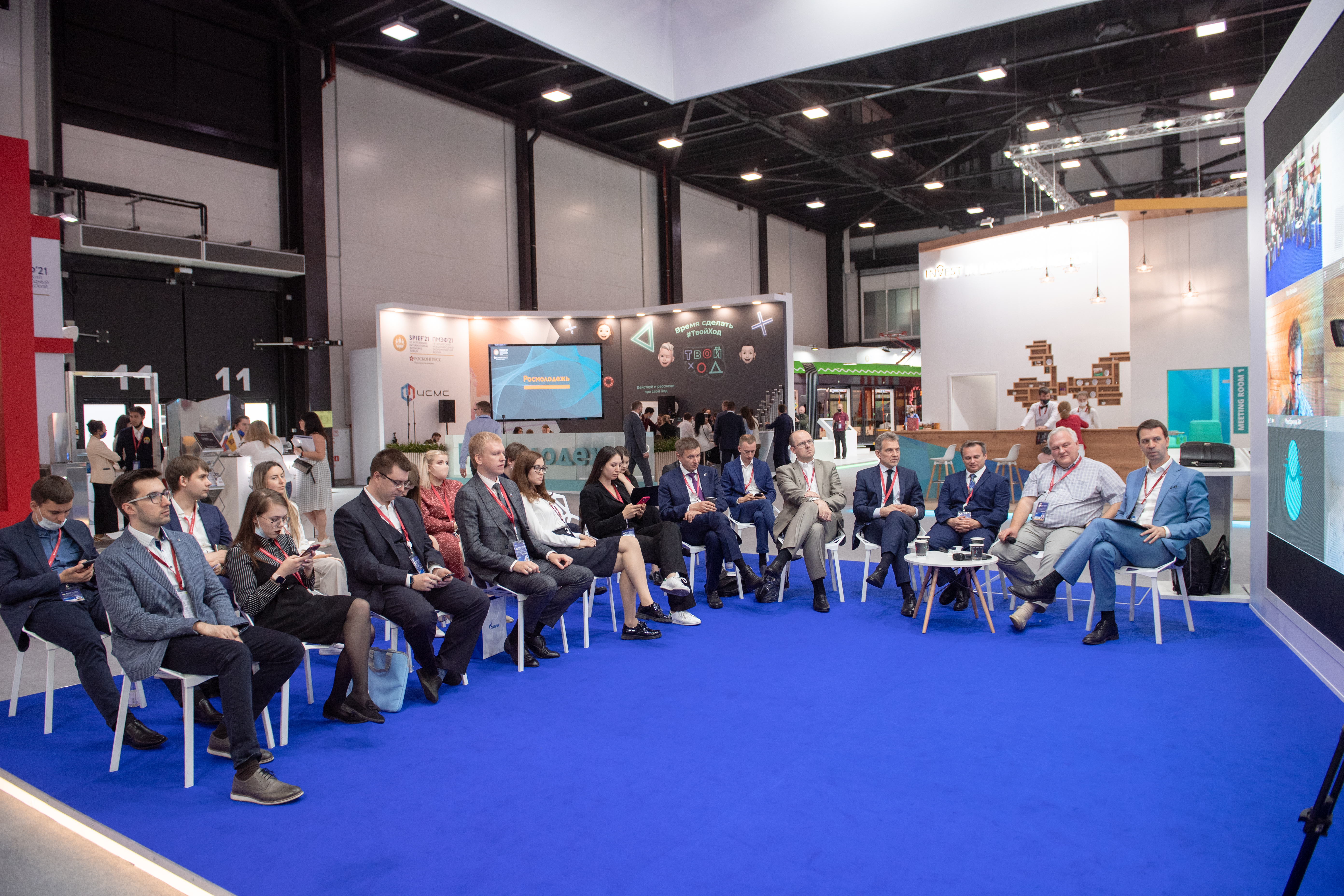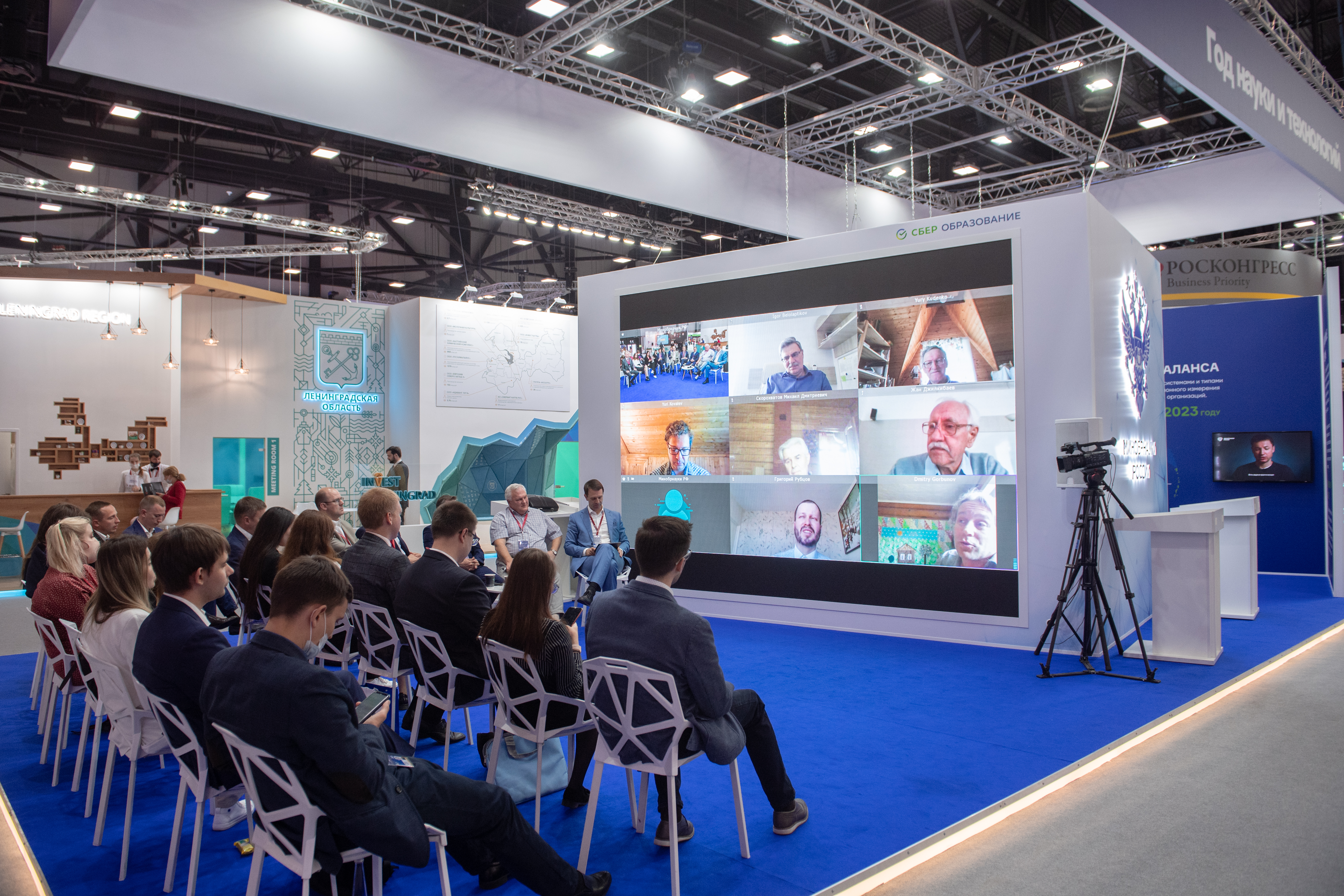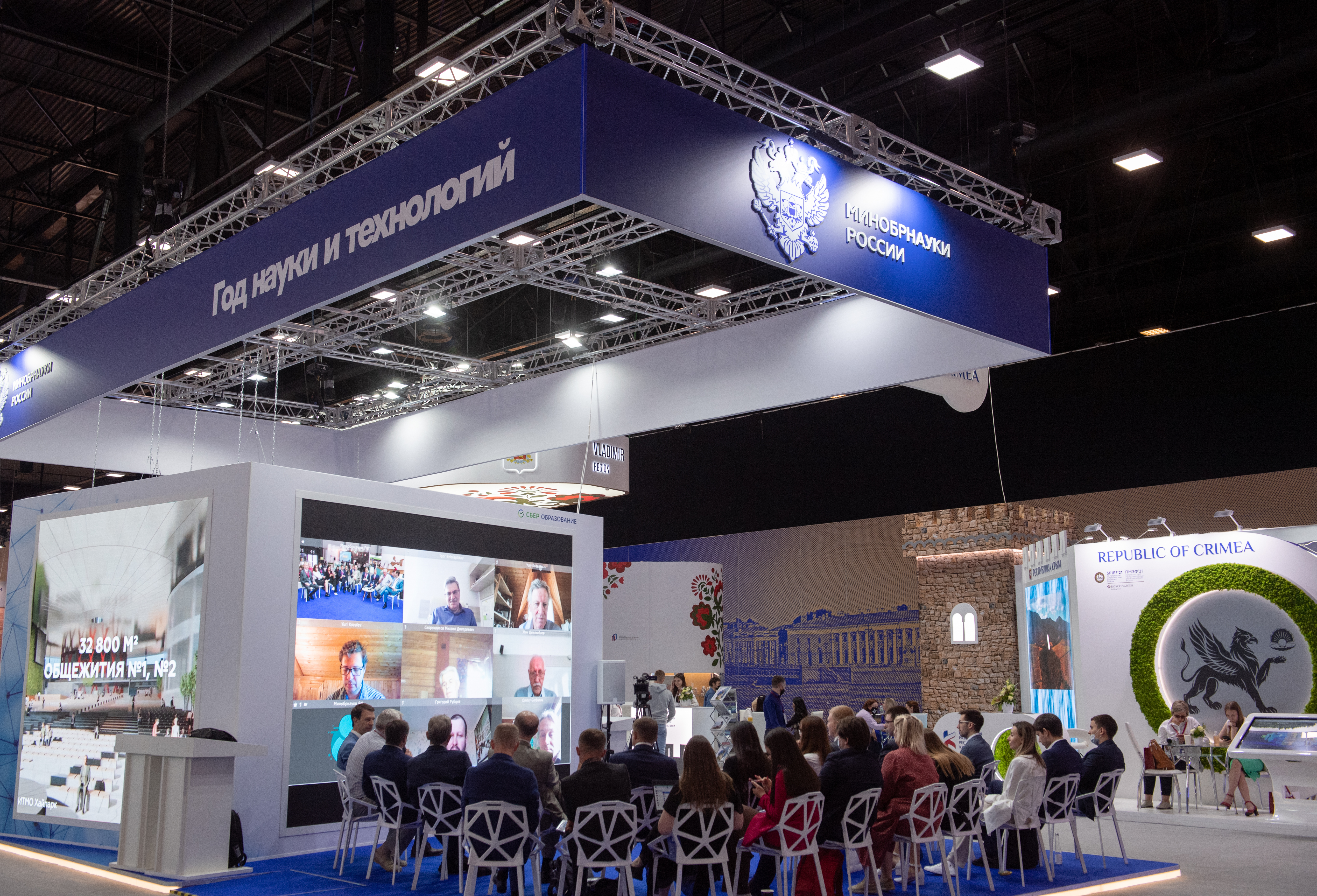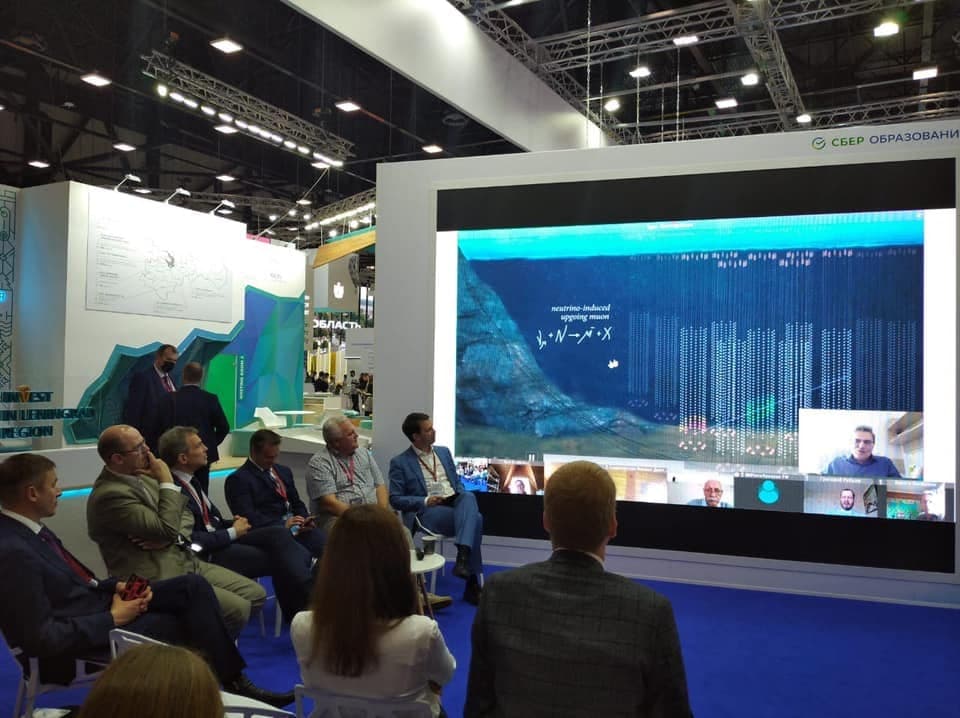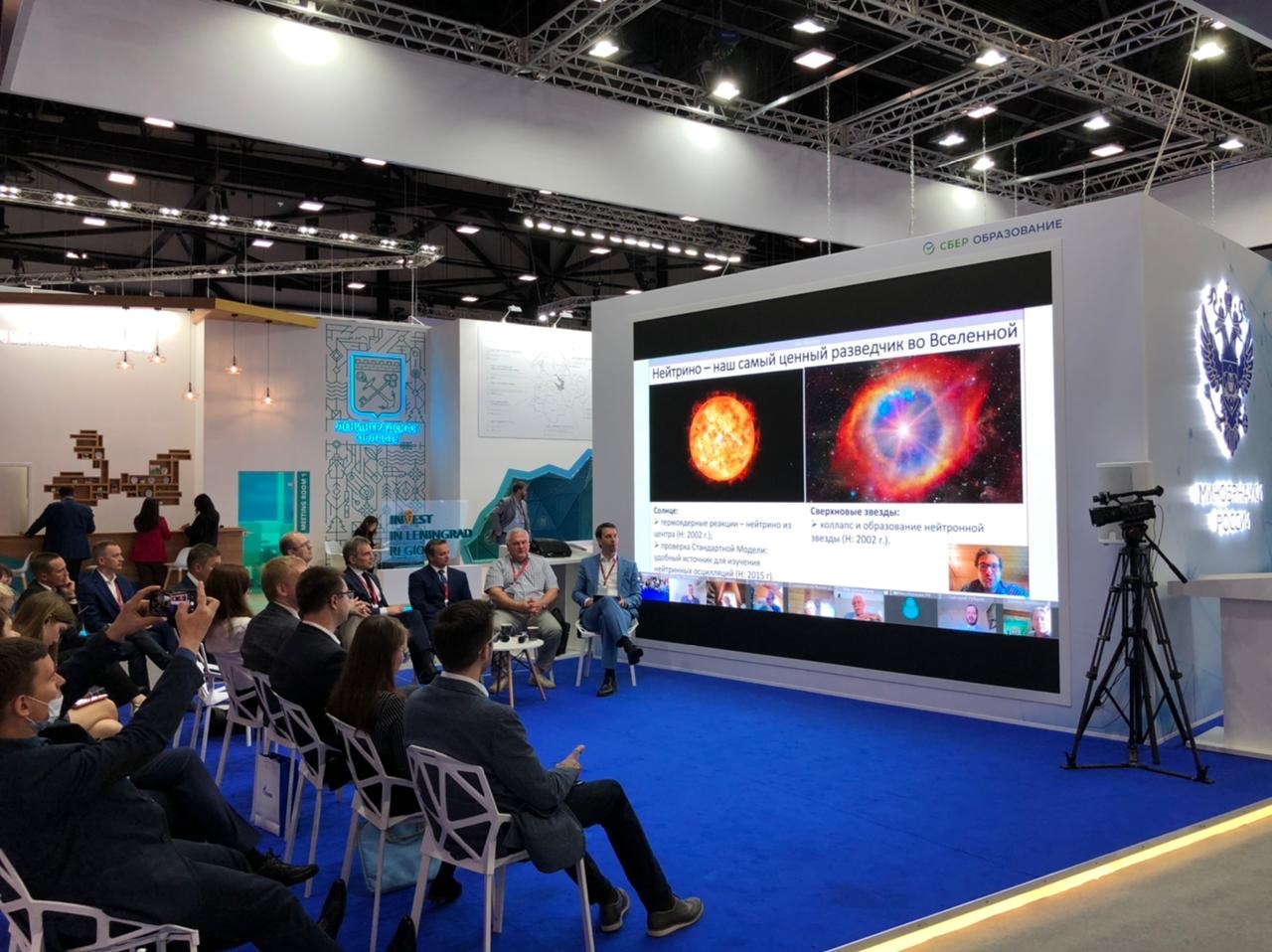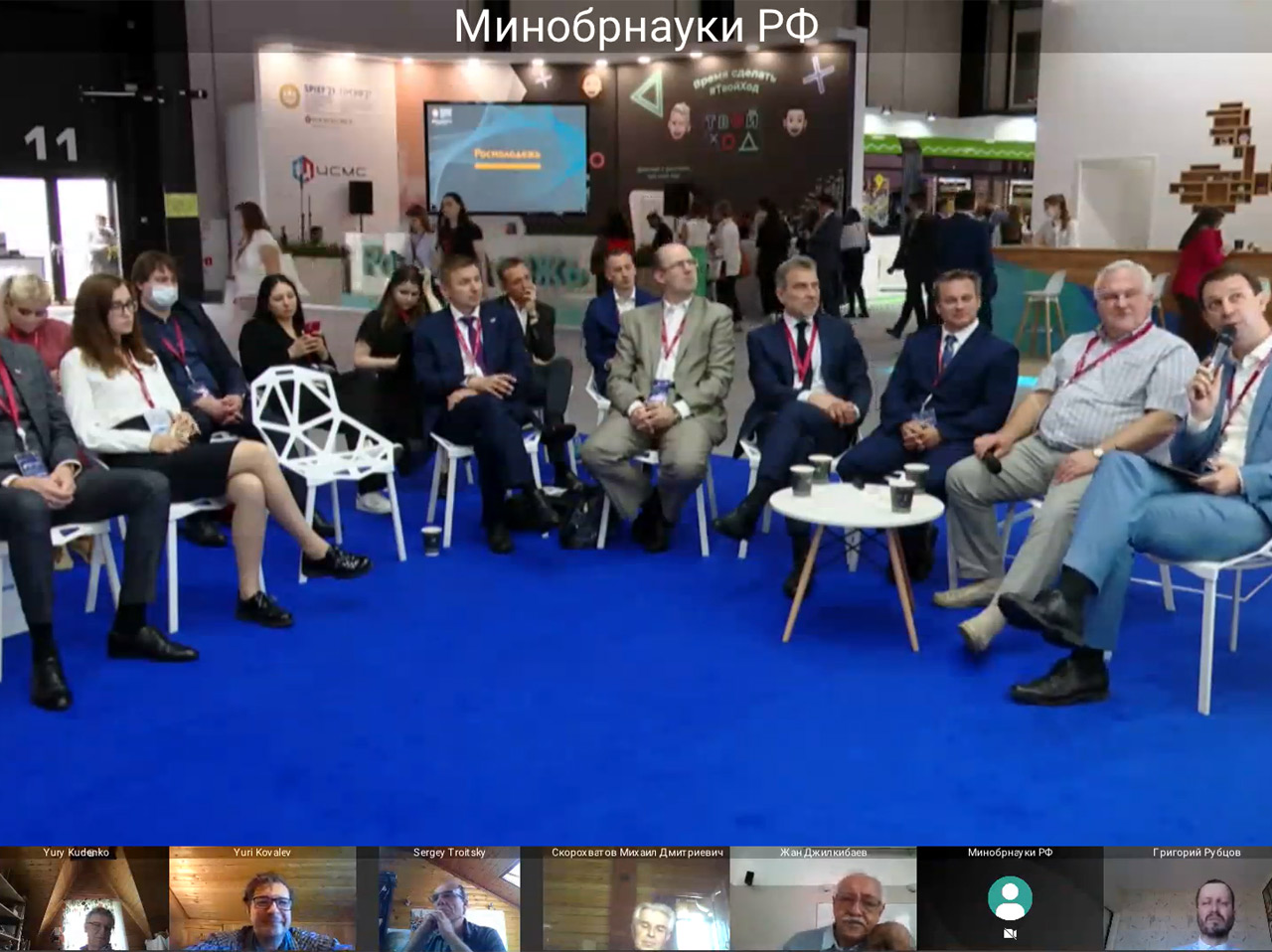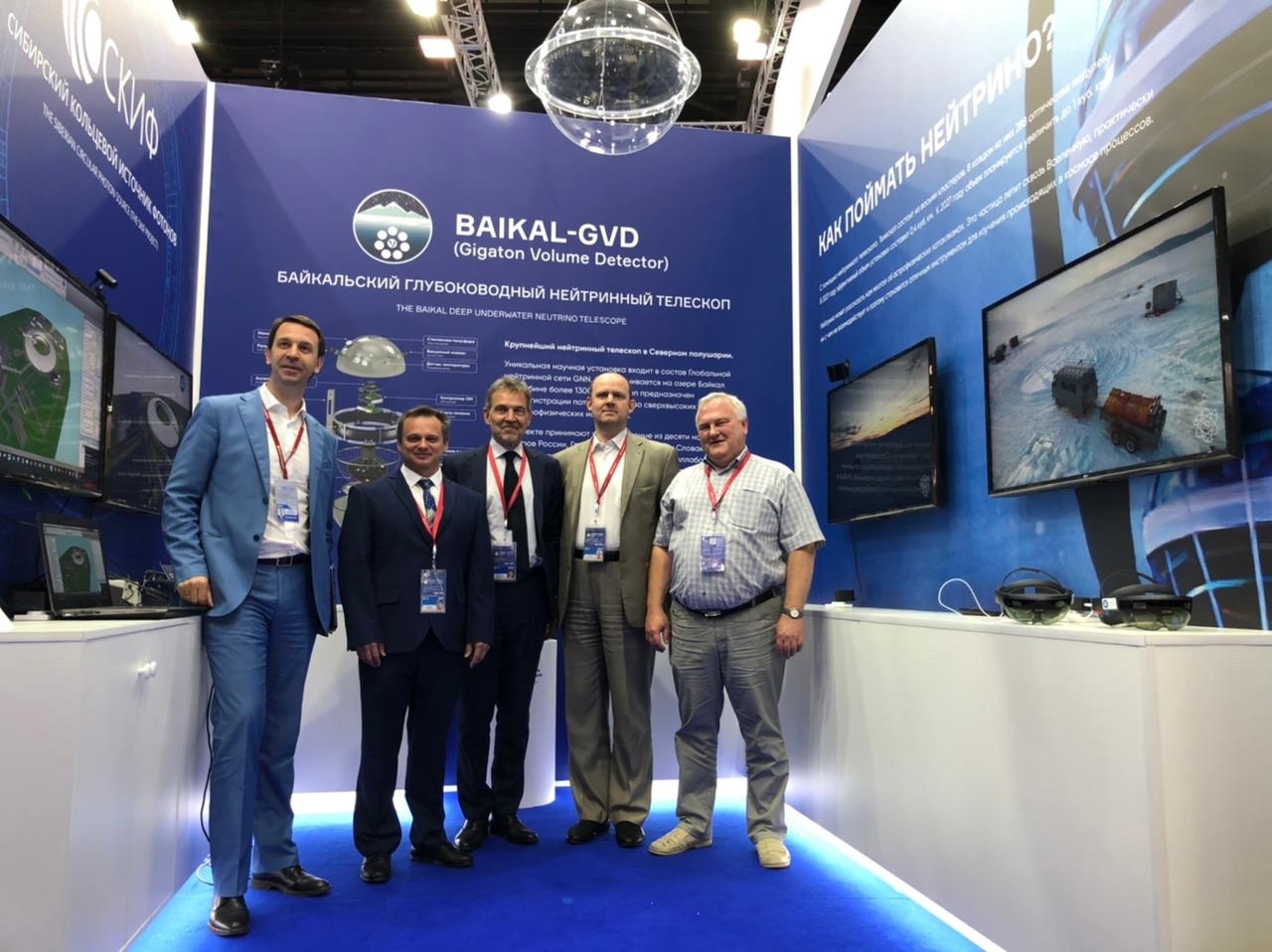There are enough neutrinos for everyone
News, 06 June 2021
The Panel discussion “Neutrinos: elusive carriers of the secrets of the Universe” took place on 5 June at the exhibition stand of the Ministry of Science and Higher Education of Russia at SPIEF-2021. Participants discussed current tasks of neutrino physics, the role of neutrinos in cosmology, international neutrino experiments with the participation of Russian scientists, and the establishment of a new neutrino programme that would engage biologists, doctors, mathematicians, mechanical and power engineers.
Speaking about ways to “tame neutrinos”, participants of the discussion noted the practical benefits that neutrino studies may give to other fields of knowledge. For example, the Baikal neutrino telescope will be useful for ecologists and geologists. Moreover, participants considered the possible use of neutrino detectors for controlling atomic reactors.
“Tools used by Russian scientists in the fields of neutrino physics are the most advanced and the most ambitious, some of the best in the world. Like the Baikal neutrino telescope Baikal-GVD or the unique Baksan observatory in the North Caucasus. So, the Russian Federation has a huge weight and the highest authority in the world scientific community,” moderator of the discussion, RAS Academician, JINR Director Grigory Trubnikov highlighted speaking about the role of international collaborations in mega-science projects and the development of neutrino physics.
He also noted that in March 2021, at the solemn launch of the Baikal neutrino telescope with the participation of Minister of Science and Higher Education of the Russian Federation Valery Falkov, it was agreed to draft a new neutrino programme of fundamental and applied research in the fields of neutrino physics, astrophysics, and particle physics. “I think that by 1 September, the prototype of this large-scale Russian neutrino programme, as we now call it, will appear. Today’s session and the launch of the Baikal neutrino telescope are a good opportunity for us, physicists, not only to declare ourselves to each other but also to invite, persistently engage biologists, doctors, power and technical engineers, mathematicians in this programme,” Grigory Trubnikov said.
Speakers agreed that the programme on the study of neutrino physics and astrophysics should become a good reason for the consolidation of all scientific institutes, maximum pooling of resources, infrastructure, intellectual potential thus to achieve breakthrough scientific results.
INP RAS Director Maxim Libanov noted, “We should not put barriers between institutes. It is necessary to unite their efforts and sources.”
“Russian President in his Address to the Federal Assembly in 2021 outlined three strategic scientific vectors for at least next ten years. The first is the development of the energy sector, the second vector is a medical “shield” for the state in its widest sense: from health conservation to safety from various biological threats. And the third vector is climate ecology. I hope that we have not only convinced ourselves one more time but also made the audience feel that neutrino physics and particle astrophysics are directly related to these three strategic vectors. That is why our general theses of today’s meeting are the following: firstly, “Make science in Russia”, and secondly, physicists are open for representatives of all scientific realms. Biologists, doctors, mathematicians, soft scientists, economists, financiers: we are ready and call you with great pleasure to take part in such a large-scale, tremendous programme being developed with “green light” turned on by the Ministry of Science and Higher Education of Russia,” Grigory Trubnikov summed up. “The St. Petersburg International Economic Forum is a platform welcoming our partner countries. It is a great occasion to invite our foreign partners to take part in the programme both in fundamental and applied studies.”
Igor Belolaptikov, Head of the Baikal-GVD project in JINR, and Dmitry Naumov, Deputy Head of the Laboratory of Nuclear Problems JINR, also gave talks at the event. In addition, some JINR employees joined the discussion online. Participants and speakers of the discussion both in-person and online also were representatives of the Institute for Nuclear Research RAS, the Space Research Institute RAS, NRC “Kurchatov Institute”, Lebedev Physical Institute, as well as representatives of two Russian mega-science projects in the fields of neutrino physics, namely the Baikal-GVD deep-underwater neutrino telescope and the Baksan Neutrino Observatory.
